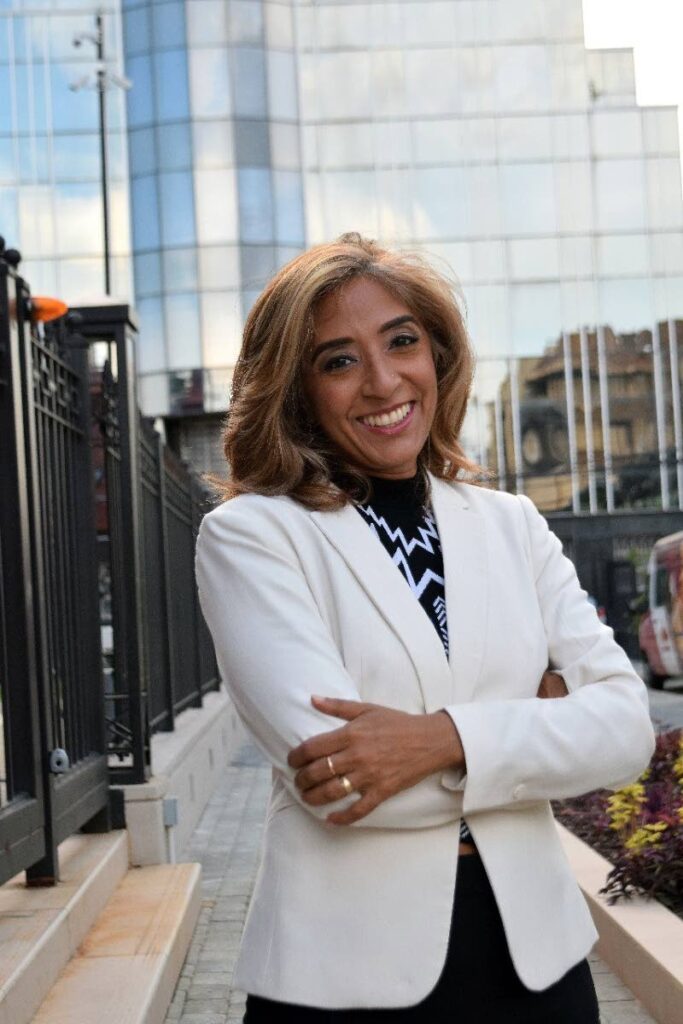Make the most of these 16 days

Dr Gabrielle Jamela Hosein
SIXTEEN DAYS of Activism to End Gender-Based Violence is a visionary feminist campaign started by the Women’s Global Leadership Institute more than 30 years ago.
Amid this effort, we should remember that violence against women and girls is complex and ubiquitous.
In public imagination, such violence has been reduced to ending male-partner battery and perhaps also child sexual abuse, which affects girls to a greater extent than boys and is perpetrated mostly by heterosexual men.
Survivors and women navigating the police and judicial system to secure orders of protection and to see perpetrators made responsible for their crimes will tell you that there’s been insufficient change.
Women in relationships will tell you that male controlling behaviour over women’s mobility, freedom, networks, leisure and time are normal, and are hardly named as violence by either women or men, though women may feel dominated and even fearful at home.
Women also continue to be killed by men’s lethality. Anissa Rajgobin-Ageemoolar survived an attempted murder by her ex-husband just last week.
However, violence against women is about more than who women "choose" or whether women leave relationships. Violence perpetrated mainly by men against women is a part of all women’s lives from birth to death, and takes place within as well as beyond homes, within as well as across borders, and within and across multiple contexts.
It is also a fundamental part of gang violence and criminal activity as gang members engage in ritual group rape ("parry") of young women from their communities (supposedly with their consent, though this argument can only be made if you ignore all the power relations involved).
Sexual assault as part of robberies is what women fear as they lie in their beds, just as they fear ending up decomposing in the Aripo forest as they go about their everyday lives. Recently, we’ve also seen assassinations of women or women being shot as “collateral damage” in gang members’ fallings-out or disputes in the drug trade.
Gangs, guns and crime have made women more vulnerable to all forms of violence. Who can forget gunmen killing 16-year-old Angelie Riley’s unborn baby as she slept on a bed next to 21-year-old Daniel Riley? This tragic example also illuminates the multiple vulnerabilities of adolescent girls, which exacerbate the risks to which they are exposed.
Women also experience violence as migrants, particularly those who work in the sex industry, those who are held in captivity to pay off debts and those who are minors. Police officers have been arrested for alleged involvement in human trafficking and child prostitution. Minors and young migrant women aged 15-19 have been found in raids from Westmoorings to Tunapuna to Chaguanas.
This is a global issue in which women may be corrupt and complicit as recruiters and managers, but where men dominate as consumers, power-holders and beneficiaries.
Violence against women is also a fundamental part of civil war, and has been experienced by women from Bosnia to Sudan to Palestine today. It is embedded in religious fundamentalisms where the enslavement of women is institutionalised, including with the support of women zealots. Survival of and escape from her sexual enslavement, and her efforts to advocate for survivors of genocide and sexual violence, are what made Nadia Murad become a Nobel Peace Prize laureate.
In Afghanistan under the Taliban, and particularly during the pandemic, adolescent girls and girl children were increasingly forced to marry as parents searched desperately to alleviate their economic burden. This has only become worse, as all but primary schooling for girls has been banned. In Iran last year, dozens of teenage girls were tortured, disappeared or murdered for rebelling against dictates that they cover their hair.
For lesbian and transwomen, who face prejudice and transphobia, lack of access to state citizenship, protection and services makes experiences of violence even more stigmatising and isolating. Hardly noticed in our midst, Indigenous women across the Americas are missing and murdered at far higher rates than non-Indigenous women, and face intersecting factors such as poverty, homelessness, racism, sexism, and the legacies of imperialism.
Denial of human rights, the costs to women’s health and experience of menstruation and reproduction, the unequal burden of care and exclusion from the highest levels of economic and political power are all contexts of subordination through which violence flows the way that rain falls through the air.
Seen through women and girls’ eyes, nowhere is safe. I could provide example after example, page after page. We must therefore make the most of just these 16 days.
Diary of a mothering worker
Entry 520
motheringworker@gmail.com

Comments
"Make the most of these 16 days"